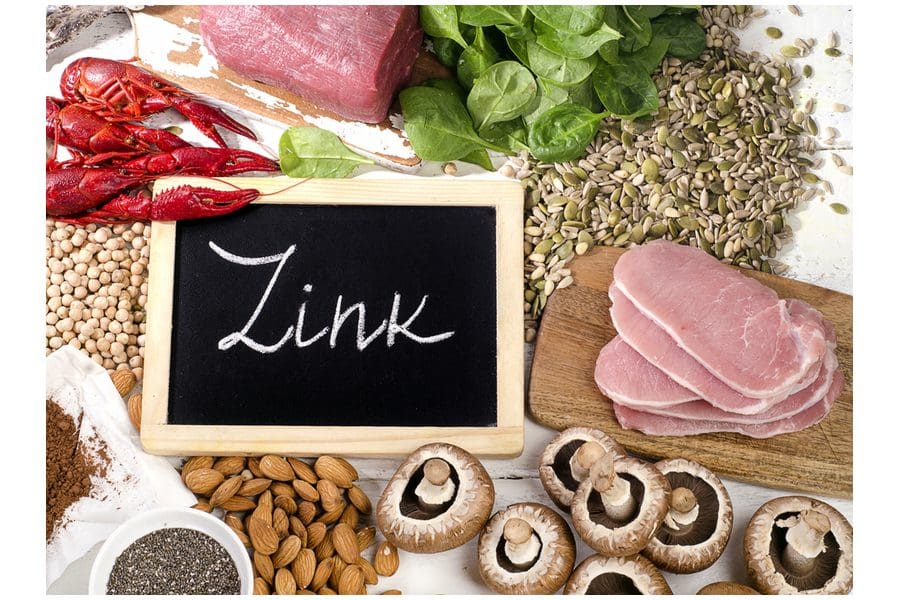Yes, we’re about to sing the praises of that mineral you took once that gave you terrible nausea for 20 minutes. Trust us, it’s worth it. (Also, if that’s the case, lower your dose!)
Zinc isn’t just right for your skin—this little mineral helps with a lot more than that. From faster recovery from colds to a optimally functioning immune system, zinc is an essential part of your diet. Here’s what you should know about zinc.
Who Needs Zinc?
Zinc deficiency isn’t a significant problem, but there are still a few groups who might benefit from supplements. Older adults tend to have lower levels of zinc because their bodies don’t absorb it as well. This can cause an variety of issues including inflammation and memory loss. Vegetarians also benefit from an extra dose of zinc, and keep in mind that the phytates in legumes and grains that vegetarians rely on can bind to zinc and make it harder to absorb—but soaking beans and grains before preparation can fix this.
Healthy Skin
Zinc and clear skin go hand-in-hand, as zinc deficiency is a possible contributor to acne. Acne is your body’s overreaction to a mild infection created when bacteria enters your pores. The bacteria on your skin is common and usually harmless. The problem is that your body gets confused and freaks out, in the form of a dramatic zit on your chin before an important event.
Zinc seems to regulate that immune reaction, so that means zinc is like a calming friend telling your immune system, “Hold on, let’s take it slow.”
The Immune System
Supplementing with zinc might not prevent you from getting sick, but it can help you get well sooner, which is good enough for us.
A widely cited study from 2017 showed zinc supplements lessened the duration of the common cold by 33 percent. So if you were going to be sick nine days, you would be sick six days instead—definitely a better deal than no improvement.
How to Get Enough Zinc
You’re convinced that zinc is the missing link in your wellness regimen and are ready to up your levels. Luckily, there are lots of foods that are rich in zinc—oysters and shrimp are good seafood choices. If you’re vegetarian, chickpeas and lentils are rich in zinc, and a few vegetables are zinc superstars: try mushrooms, kale, and asparagus.
If you don’t think you have enough zinc in your diet, you can also take a supplement. Zinc is almost always a part of any standard multivitamin.






